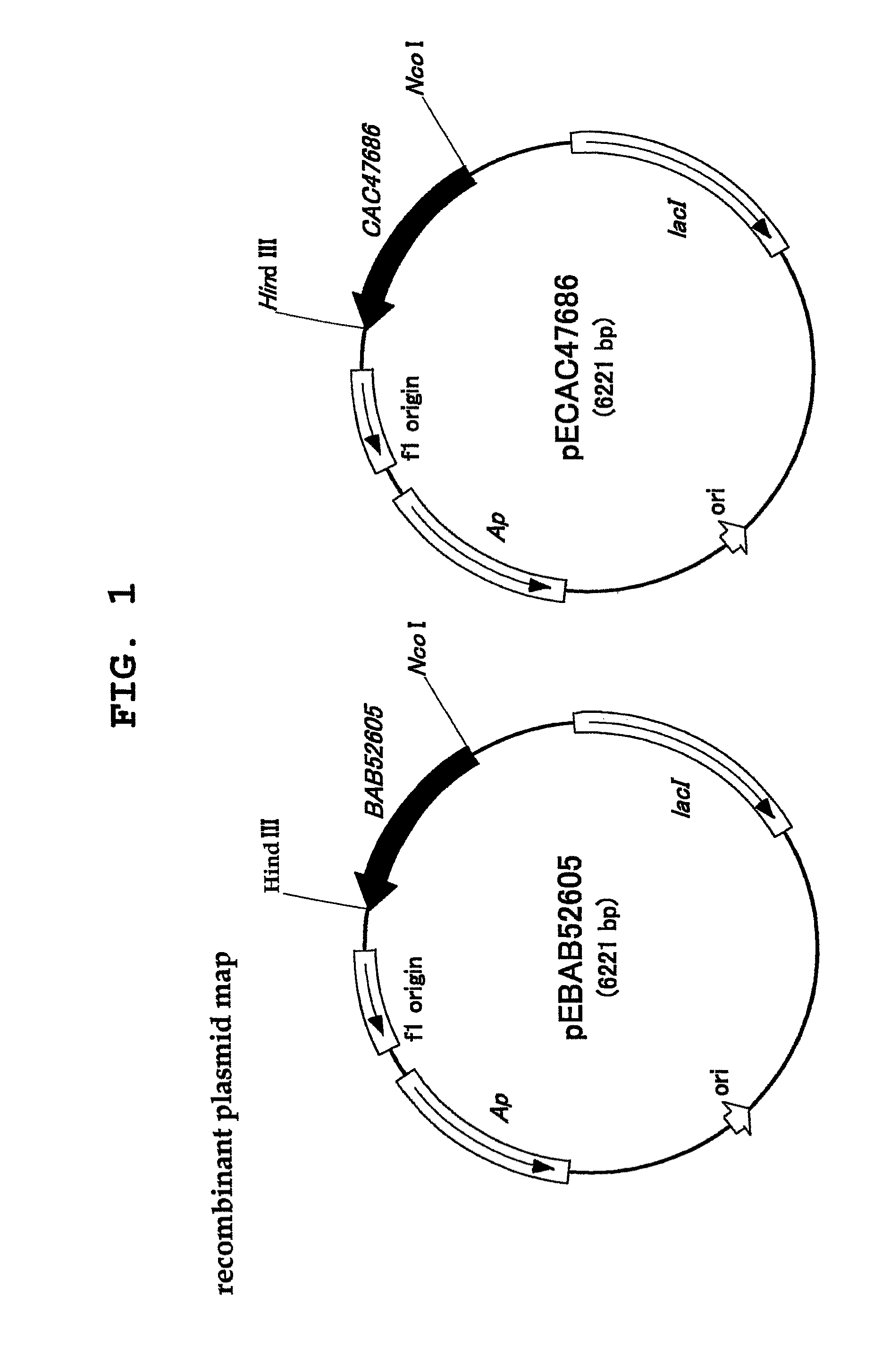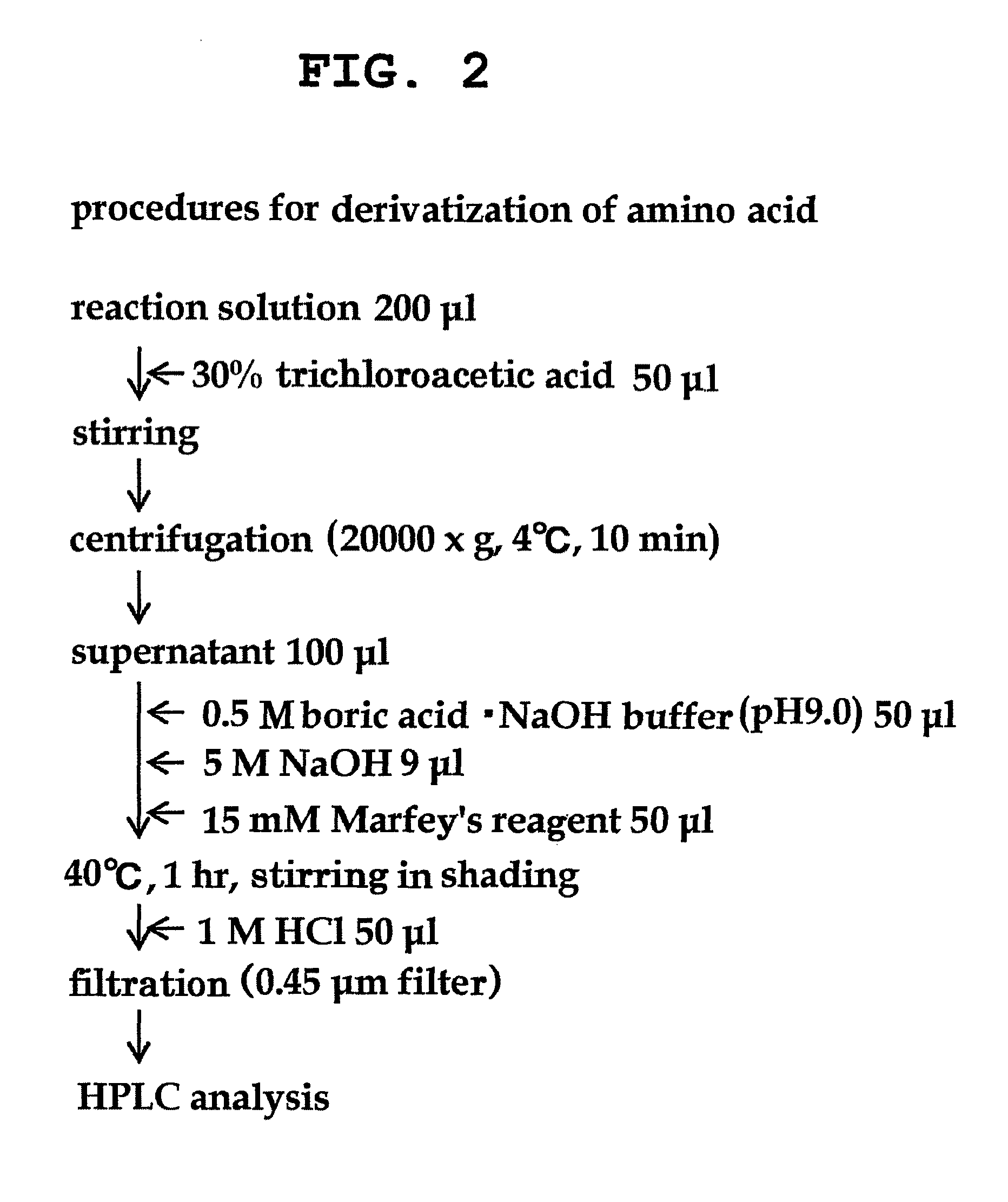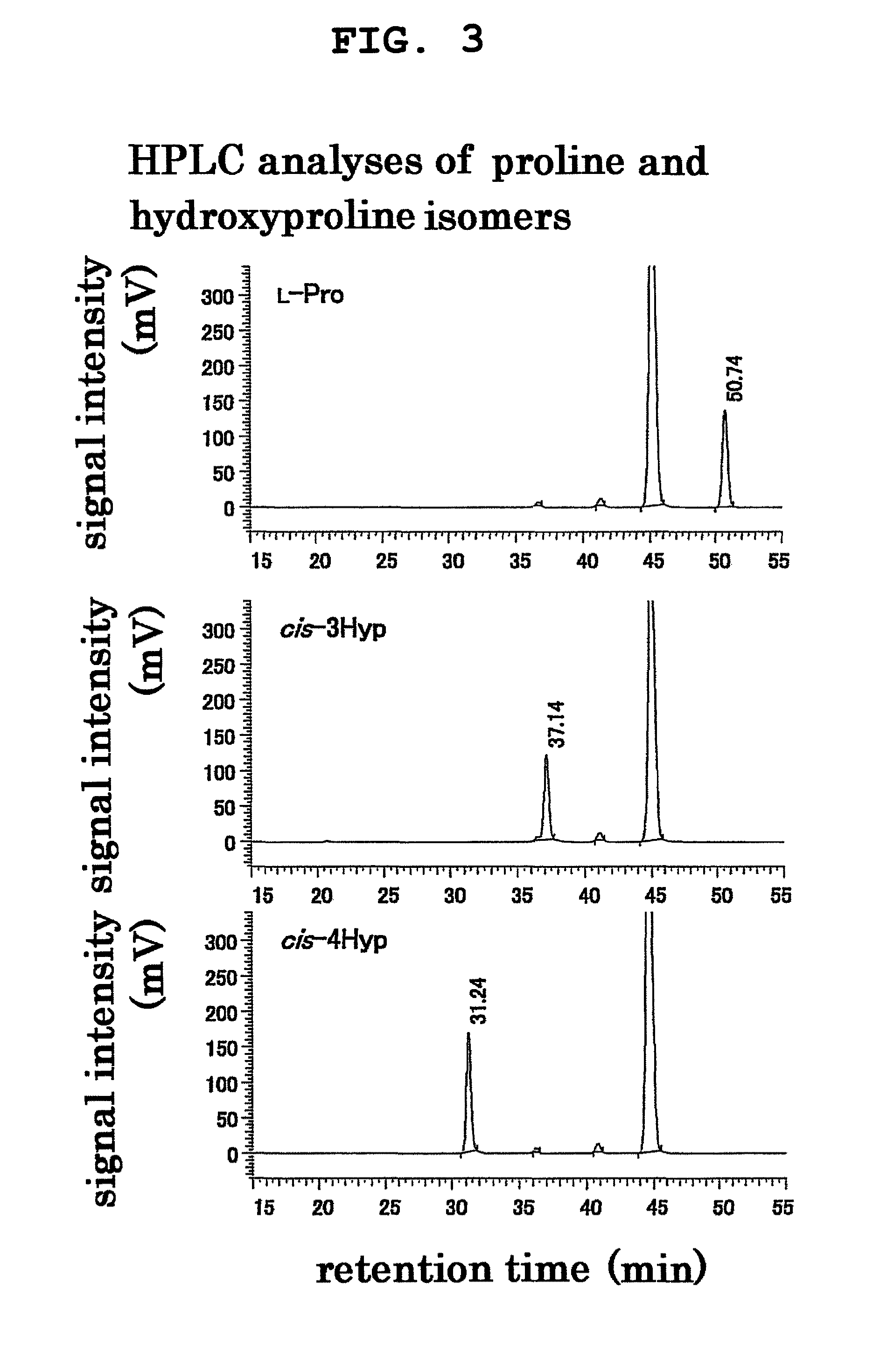L-proline cis-4-hydroxylase and use thereof to produce cis-4-hydroxy-L-proline
a technology of cis-4-hydroxylase and lproline, which is applied in the direction of oxidoreductases, biochemistry apparatus and processes, enzymes, etc., can solve the problems of inability to produce cis-4-hydroxyl-proline, high cost of lproline synthesis starting material, and inability to meet the requirements of industrial use, etc., to achieve the effect of efficient production of industrial usefulness
- Summary
- Abstract
- Description
- Claims
- Application Information
AI Technical Summary
Problems solved by technology
Method used
Image
Examples
example 1
1. Cloning, Transduction and Expression of Genes Encoding Proteins BAB52605 and CAC47686
1-1. Method
(Extraction of Microorganism Chromosomal DNA to be Used as Template for Gene Amplification)
[0047]Lotus corniculatus rhizobia, Mesorhizobium loti MAFF303099, was obtained from National Institute of Agrobiological Sciences Genebank, and Medicago sativa rhizobia, Sinorhizobium meliloti 1021 (NBRC 14782T), was obtained from National Institute of Technology and Evaluation, and chromosomal DNAs thereof were used as templates for gene amplification.
[0048]The aforementioned two kinds of microorganisms were subjected to liquid shaking culture in 5 mL of TY medium (0.5% Bacto Trypton, 0.3% Bacto Yeast extract, 0.04% CaCl2) at 28° C. for 3 days. After the culture, bacterial cells were collected by centrifugation (4° C., 5000×g, 10 min), and chromosomal DNAs were extracted from the bacterial cells according to a conventional method.
(Amplification of Object Gene)
[0049]A gene encoding the enzyme of ...
example 2
2. Hydroxylation Reaction of L-Proline with BAB52605 Protein and CAC47686 Protein
2-1. Method
[0056]Hydroxylation reaction of L-proline with a cell-free extract containing BAB52605 protein or CAC47686 protein obtained in Example 1 was performed. A reaction solution of the composition shown in Table 4 (hereinafter to be referred to as “standard reaction solution”) was prepared, and the reaction was performed with stirring at 30° C. and 170 rpm for 30 min. In addition, as a negative control, a reaction solution obtained by excluding L-proline from the standard reaction solution (hereinafter to be referred to as “Pro-free reaction solution”), a reaction solution free of 2-oxoglutaric acid (2-OG) (hereinafter to be referred to as “2-OG-free reaction solution”), and a reaction solution containing, instead of the cell-free extracts containing BAB52605 protein and CAC47686 protein, a cell-free extract of Escherichia coli Rosetta 2 (DE3) free of a vector expressing the aforementioned proteins...
PUM
| Property | Measurement | Unit |
|---|---|---|
| pH | aaaaa | aaaaa |
| pH | aaaaa | aaaaa |
| acid | aaaaa | aaaaa |
Abstract
Description
Claims
Application Information
 Login to View More
Login to View More - R&D
- Intellectual Property
- Life Sciences
- Materials
- Tech Scout
- Unparalleled Data Quality
- Higher Quality Content
- 60% Fewer Hallucinations
Browse by: Latest US Patents, China's latest patents, Technical Efficacy Thesaurus, Application Domain, Technology Topic, Popular Technical Reports.
© 2025 PatSnap. All rights reserved.Legal|Privacy policy|Modern Slavery Act Transparency Statement|Sitemap|About US| Contact US: help@patsnap.com



